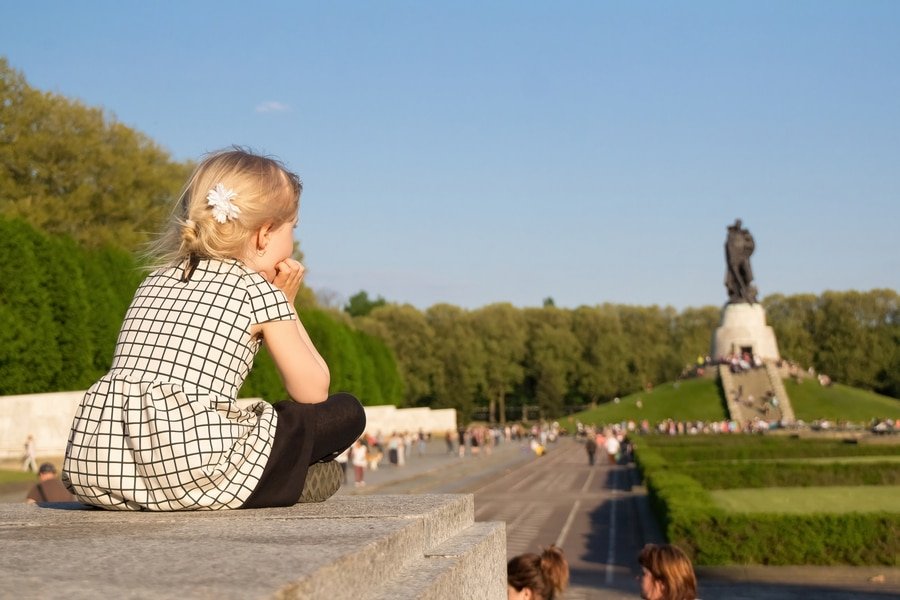The two-day commemorative event on the grounds of the Treptow Memorial will take place in an extended format in the anniversary year in order to promote a reflective, contemporary remembrance of the end of the Second World War in the context of Russia’s ongoing war of aggression against Ukraine.
The Programme:
8.5. 12 noon to 9.5. 8 pm
▪️ Memorial wall with photos and documents from family and public archives as a space for personal memories: Stories of our relatives in the fight against Nazi Germany, under Nazi occupation, in Nazi concentration camps and in the Gulag
▪️ Exhibition on the crimes of the Soviet and Russian regimes in the context of the attack on Ukraine: Forgotten Crimes – How the current war came about; photo exhibition of destroyed Ukrainian cities
▪️ Presentation of the international campaign People First
▪️ interactive installation ‘Sit and Watch’ (worst of russian propaganda) by @ru_berlin_action
8. Mai
from 12:00
● Multilingual one-hour guided tours of the memorial complex by Memorial Deutschland. Registration next to the stage, exact start times of the tours will also be announced there.
14:00-14:40
● Reading out the names of the soldiers buried anonymously in Treptow
15:00-17:00
● Stage programme with speeches, poetry and musical contributions
17:00
● Discussion about the culture of remembrance on or near the stage
18:00-19:30
● Reading out the names of the soldiers buried anonymously in Treptow
20:00-21:00
● Video screening of the documentary Voices of War
9. Mai
14:00
● Laying of flowers
from 15:00
● Multilingual one-hour guided tours of the memorial complex by Memorial Deutschland. Registration next to the stage, exact start times of the tours will also be announced there.
15:00-16:30
● Reading out the names of the soldiers buried anonymously in Treptow
17:00-19:00
● Stage programme with speeches, poetry and musical contributions

